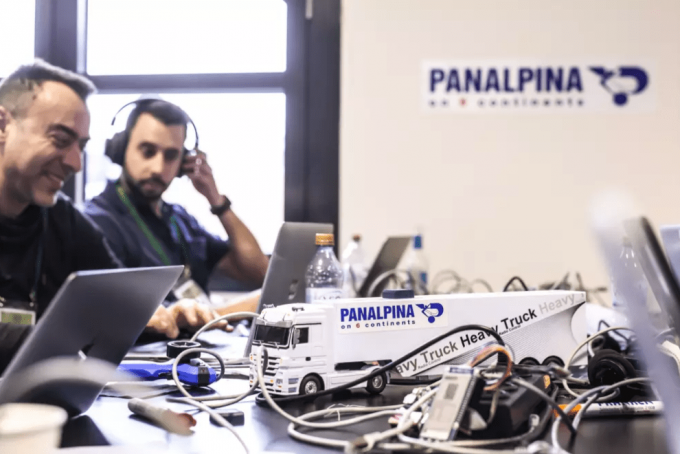Tighter EU import requirements proving 'a challenge' for forwarders
“Stricter Customs regulations” from the EU’s ICS2 will see “stricter enforcement”, Hapag-Lloyd has warned, and ...

Panalpina is to pilot applications for blockchain in logistics in an attempt to understand the potential benefits of the technology.
The forwarder, which joined the Blockchain in Transport Alliance (BiTA) last week, is eager to learn and test new technologies, following customer requests.
Luca Graf was brought in seven months ago as head of digital innovation at Panalpina to study which new technologies will have an impact on logistics.
“Blockchain is quite hyped at the moment, but we wanted to get into a blockchain ...
'Disastrous' DSV-Schenker merger would 'disrupt European haulage market'
'To ship or not to ship', the question for US importers amid tariff uncertainty
'Chaos after chaos' coming from de minimis changes and more tariffs
List of blanked transpac sailings grows as trade war heats up and demand cools
EC approves DSV takeover of DB Schenker
Shippers in Asia restart ocean shipment bookings – but not from China
Forto 'sharpens commercial priorities' as it lays off one-third of staff
India withdraws access for Bangladesh transhipments, in 'very harmful' decision
'Tariff hell' leaves industries in limbo – 'not a great environment to plan'
Temporary tariff relief brings on early transpacific peak season
Pre-tariff rush of goods from US to China sees air rates soar, but not for long
De minimis-induced ecommerce demand slump could cripple freighter operators
Asian exporters scramble for ships and boxes to beat 90-day tariff pause
Forwarders 'allowing the fox into the chicken run' by supporting 'hungry' carriers
Hapag 'took the bigger risk' when it signed up to Gemini, says Maersk
'Restoring America's maritime dominance' – stop laughing at the back of the class

Comment on this article
George H
June 03, 2018 at 7:54 amHow is this different from what Olam Foundation is doing with Swissport?